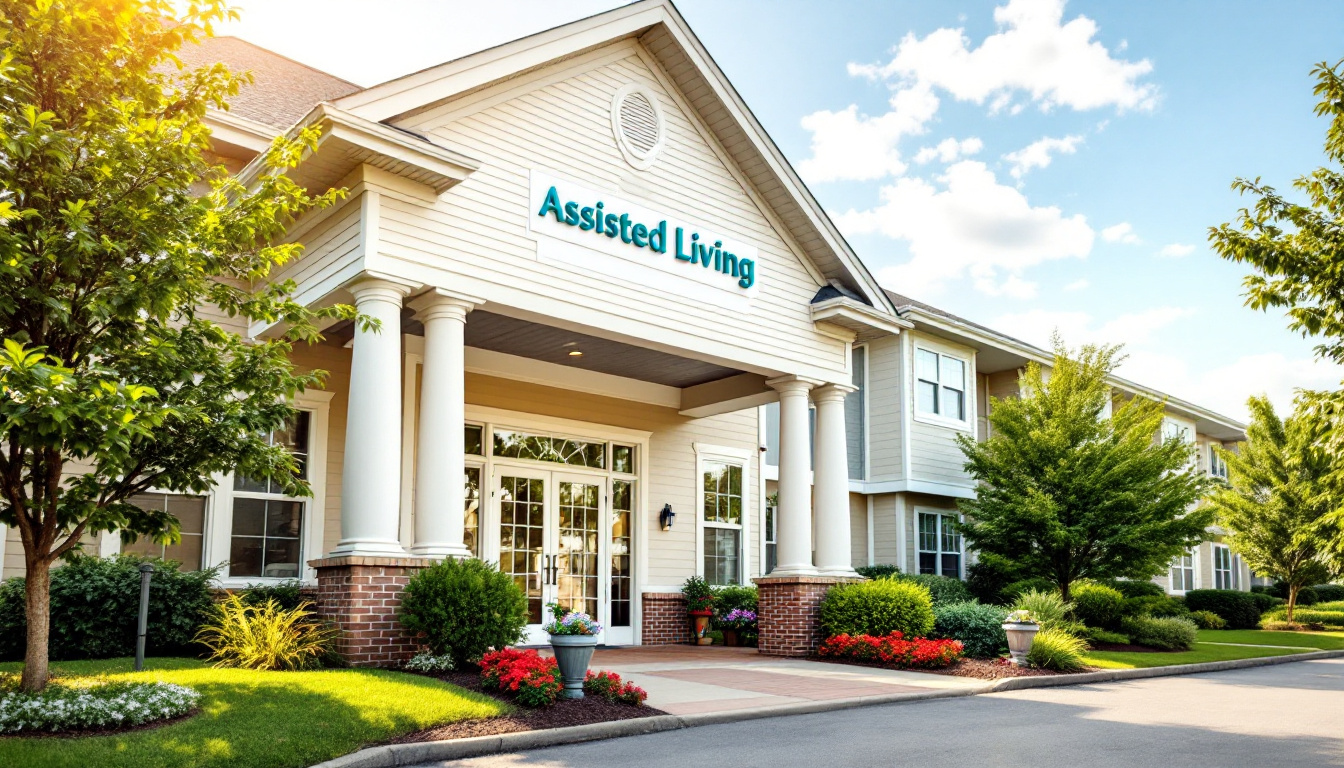The Role of Senior Care Placement Agencies in Long-Term Care Planning
Navigating Senior Living Options with Expert Support

Understanding the Critical Role of Placement Agencies
Long-term care planning is a complex process that involves numerous considerations, from assessing medical and personal needs to exploring financial options and legal documents. Central to this process are senior care placement agencies, which serve as vital guides for families and elders alike. They simplify the often overwhelming task of choosing suitable care environments, ensuring that decisions align with individual preferences, health conditions, and financial situations. This article explores the essential functions of these agencies, their benefits, the processes they employ, and how families can effectively work with them to secure the best future care for their loved ones.
Roles and Functions of Senior Care Placement Agencies

What are the roles and functions of senior care placement agencies in long-term care planning?
Senior care placement agencies serve a crucial role in helping families and older adults navigate the complex landscape of long-term care options. They provide a personalized approach by assessing the specific needs, health status, and preferences of seniors. This tailored assessment ensures that recommendations are suited to an individual’s circumstances, including medical conditions, lifestyle choices, and financial considerations.
Once the assessment is complete, these agencies generate a customized list of potential living environments. This list typically includes various options such as assisted living facilities, memory care centers, independent living communities, and nursing homes. They carefully consider factors like location, amenities, affordability, and the quality of care offered. This process enables families to make informed decisions aligned with their loved one’s needs.
Part of their primary functions involves assisting with facility tours and quality evaluations. By arranging visits and providing insights into each community’s environment, staff, and services, agencies enable families to assess which placements meet their expectations. They help identify facilities that uphold high safety standards and offer supportive social and medical programs.
Transitioning a loved one into a new care setting can be challenging. Senior placement agencies coordinate these logistics, from arranging medical assessments and completing paperwork to organizing a smooth move-in process. Their expertise helps reduce the stress that often accompanies such transitions, making the process more manageable.
Moreover, these agencies frequently provide continued support after placement. They follow up to ensure that the senior’s needs are being met and address any issues that might arise post-move. Their ongoing involvement fosters a positive adjustment period and enhances the quality of life for residents.
Beyond direct placement services, agencies advocate for seniors by connecting them with additional resources. These include home care services, legal assistance for estate planning, and financial advice. Many also serve as a liaison with healthcare providers to coordinate ongoing medical care and wellness programs.
Overall, senior care placement agencies play a vital role in creating tailored, coordinated, and proactive long-term care plans. Their comprehensive services help ensure that seniors receive appropriate care that respects their preferences and promotes their independence and dignity.
Benefits of Involving Placement Agencies in Elder Care Planning

How can involving a senior care placement agency benefit the planning for elder care?
Engaging a senior care placement agency offers numerous advantages for families and seniors navigating the complex landscape of elder care options. These agencies provide specialized expertise, ensuring that care decisions are tailored specifically to each individual’s health, preferences, and lifestyle.
One of the primary benefits is the streamlining of the entire process. Instead of spending countless hours researching and touring various facilities, families receive personalized recommendations based on comprehensive assessments. This targeted approach saves valuable time and reduces the stress often associated with such decisions.
Placement agencies also excel at handling all the necessary paperwork, negotiations, and logistical arrangements. They facilitate tours, coordinate with insurance providers, and organize the move-in process. Their support continues even after placement, offering ongoing assistance that ensures a smooth transition.
Importantly, reputable agencies prioritize the dignity and safety of seniors. They advocate for options that promote independence, comfort, and quality of life. By considering the unique needs of each individual, these agencies foster ethical elder care practices that respect seniors’ wishes.
Involving a placement agency ultimately empowers families to make informed, comprehensive decisions. It reduces the financial burden by identifying affordable options and may secure better rates through their established networks. Their guidance guarantees that the chosen care environment aligns with the senior’s needs, ensuring a higher quality of life.
Benefits chart summarizing the role of senior placement agencies
| Benefit | Explanation | Additional Details |
|---|---|---|
| Expert guidance | Tailored recommendations based on individual needs | Assesses health, preferences, and lifestyle |
| Simplified process | Efficiently identifies suitable care options | Saves time and reduces stress |
| Handles paperwork and logistics | Manages legal, financial, and administrative tasks | Organizes tours, move-in, and documentation |
| Negotiates fees and costs | Aims for best rates and coverage | Works with care facilities and insurance providers |
| Prioritizes dignity and safety | Focuses on quality of life and respect for seniors | Ethical standards in elder care |
More about the benefits
The role of placement agencies extends beyond mere listings; they serve as advocates and guides throughout the elder care journey. Families often find that using these services enhances peace of mind, knowing that experienced professionals are actively supporting their loved ones’ transitions.
In addition to local expertise, many agencies stay updated on the latest care options, regulatory changes, and funding opportunities. This knowledge ensures families are well-informed and can make choices aligned with current standards and available resources.
With the support of a reliable senior placement agency, families can effectively balance emotional, medical, and financial considerations. The ultimate goal is to secure a care environment that upholds the senior's dignity, safety, and happiness while alleviating stress and uncertainty for families.
Search terms for further research
Choosing and Collaborating with Placement Agencies

How should families choose and work with a senior care placement agency?
When considering a senior care placement agency, families should start by doing thorough research into multiple options. Visiting care communities in person can provide valuable insights into the environment, staff interactions, and suitability for their loved ones.
It is essential to select reputable agencies that focus on the individual needs of seniors rather than those driven solely by commission or profit. Families should inquire about the agency’s qualifications, experience, and the methods they employ to evaluate and recommend care options.
Understanding how an agency makes placement decisions is critical. Transparent practices, clear evaluation criteria, and a comprehensive understanding of available facilities contribute to a better fit. Be cautious of referral services that may prioritize facility relationships over the senior's best interests.
Open and honest communication is vital. Families should ask about the agency’s evaluation process, ranging from health assessments to personal preferences. Ensuring that the agency fully explains its methods helps avoid rushed placements that may not meet the senior’s needs.
Trusted resources such as government websites, nonprofit organizations, and verified online reviews can provide additional guidance and third-party validations. These sources help assess the reputation and reliability of the agency.
By taking the time to evaluate multiple options, asking detailed questions, and verifying credentials, families can facilitate a placement process that results in a safe, personalized, and suitable living arrangement. This careful approach ultimately supports the well-being and independence of the senior, while reducing stress and uncertainty for families.
Understanding Senior Living Options and the Agency’s Role

What are the common senior living options, and how do placement agencies help in identifying suitable choices?
Senior living options are diverse, catering to different needs, preferences, and levels of independence. The main types include assisted living facilities, memory care units, nursing homes, independent living communities, and Continuing Care Retirement Communities (CCRCs).
Assisted living facilities provide housing, help with daily activities like bathing, dressing, and medication management, and foster social engagement. Memory care units are specialized, designed for seniors with Alzheimer’s or other dementias, offering secure environments and tailored activities. Nursing homes, or skilled nursing facilities, deliver intensive medical care, rehabilitation therapies, and 24-hour supervision, suitable for those with significant health issues.
Independent living communities cater to seniors who are able to manage daily life but wish to enjoy a maintenance-free lifestyle with amenities and social activities. CCRCs offer a continuum of care—combining independent, assisted, and skilled nursing services on one campus—allowing residents to age in place with varying levels of support.
Placement agencies play a vital role in helping families navigate these options. They begin with a thorough assessment of the senior’s health status, financial resources, cultural preferences, and desired location. Based on this evaluation, they recommend suitable communities that match the senior’s profile.
These agencies coordinate visits and tours of potential facilities, helping families get a firsthand look at environments, amenities, and staff. They assist with necessary paperwork, including applications and insurance verifications, and provide guidance on the move-in process.
Reputable agencies are familiar with the local landscape, including the quality and reputation of specific facilities, insurance options like Medicare and Medicaid, and availability of subsidy programs. They often receive a referral fee from the chosen community but operate transparently.
Their expertise simplifies the complex decision-making process, reduces the stress for families, and ensures that seniors are placed in environments that support their comfort, health, and independence. Ultimately, these agencies help families find the best-fit homes, fostering a smooth transition and ongoing support during and after placement.
Processes and Procedures in Arranging Care Options

What processes and procedures do placement agencies use to assist in arranging care options?
Senior placement agencies follow a structured approach to support families in finding suitable long-term care solutions for their loved ones. The process begins with an initial consultation where the agency assesses the individual’s health status, daily living needs, preferences, and financial situation. This allows the agency to understand the specific requirements and priorities for the senior.
Following the assessment, the agency conducts a detailed evaluation of activities of daily living (ADLs), mobility, social interests, and any special care needs such as memory support or medical supervision. Based on this information, they develop a personalized list of care options, including assisted living communities, memory care facilities, nursing homes, or independent living arrangements.
The next step involves researching and visiting potential facilities. Agencies evaluate each environment's quality, staff credentials, safety measures, and available services. They often coordinate and arrange tours for families, allowing them to see the facilities firsthand and ask questions about services, costs, and community atmosphere.
Once suitable options are identified, the agency assists in handling the necessary paperwork. This includes applications, insurance verifications, and gathering medical and legal documentation. They also facilitate communication between families and care providers to clarify services covered by insurance or government programs.
Coordination of move logistics is another critical aspect. The agency helps arrange transportation, oversees the move-in process, and offers support during the transition period to reduce stress on the senior and their family.
Many agencies provide ongoing follow-up support after placement. They work with families to develop personalized care plans, which outline specific care goals, assign responsibilities, and establish communication channels among caregivers, family members, and healthcare professionals.
This comprehensive process ensures that older adults are placed in environments that best meet their health and personal needs, while providing families peace of mind and clarity during what can be a challenging transition.
Supporting Families and Caregivers in Care Decisions

How do placement agencies support families and caregivers in the decision-making process?
Senior placement agencies play a crucial role in assisting families and caregivers during the complex process of choosing appropriate long-term care options. They provide comprehensive, accessible information about various care settings such as assisted living, nursing homes, memory care facilities, and independent living options.
One of their primary functions is to help families navigate the often overwhelming landscape of healthcare and long-term care systems. Agencies assess the specific needs, preferences, and financial situation of each individual to recommend suitable options that align with their health conditions and lifestyle desires.
These agencies facilitate crucial decision-making steps, including evaluating care levels, understanding treatment choices, and planning for future health needs through advance directives and legal arrangements. Many agencies offer targeted training, counseling, and education sessions to improve caregiver understanding and confidence
for managing ongoing care responsibilities.
Furthermore, placement agencies connect families with valuable resources such as respite care providers, support groups, and legal or financial advisors. This comprehensive support reduces caregiver stress and helps ensure that both the elder’s and the family’s needs are prioritized.
By serving as a dedicated advocate, an agency simplifies the remote, intricate process of selecting a long-term care setting. They ensure families can make informed, personalized choices that respect the elder’s dignity and wishes, fostering a sense of security and peace of mind.
Resources and Additional Support
| Resource Type | Purpose | Description |
|---|---|---|
| Caregiver Support Groups | Emotional support | Facilitates sharing experiences and coping strategies among caregivers |
| Legal & Financial Resources | Legal estate planning | Helps with advance directives, power of attorney, and financial planning |
| Respite Care Services | Caregiver relief | Offers temporary relief to prevent burnout and maintain caregiver health |
| Educational Workshops | Care management | Provides training on medication management, daily activities, and emergency planning |
| Local Senior Organizations | Community support | Offers additional services and events for seniors and caregivers |
Steps in the Placement and Decision Support Process
| Step | Action | Purpose |
|---|---|---|
| Initial Consultation | Understanding needs and preferences | Establish baseline info for recommendations |
| Needs Assessment | Medical, social, and personal evaluation | Tailor search based on care levels and preferences |
| Facility Research & Recommendations | Shortlisting and guidance | Narrow options to suitable and available settings |
| Facility Tours & Selection | Visiting recommended locations | Allow families to assess environment and culture |
| Transition & Follow-Up | Moving planning and ongoing support | Ensure smooth transition and continued care oversight |
Attributes of an Effective Placement Agency
| Feature | Importance | Details |
|---|---|---|
| Experience | Ensures knowledgeable guidance | Preferably longstanding with positive community reputation |
| Range of Options | Provides diverse choices | Offers access to various care levels and settings |
| Transparency | Builds trust | Clearly discloses payment structures and relationships |
| Reputation & Reviews | Validates quality | Positive feedback from previous clients |
| Local Area Knowledge | Facilitates seamless placement | Familiarity with regional healthcare providers |
Supporting Evidence and Search Terms
For families seeking more information, searching for "Family support in long-term care planning" can offer extensive resources, insights, and community support options. Such searches typically lead to reputable organizations and detailed guides that further aid in making informed, compassionate care decisions.
Resources, Support Services, and the Impact of Early Planning

What resources and services are typically provided by placement agencies to facilitate long-term care planning?
Senior placement agencies play a vital role in helping families navigate the complex landscape of long-term care. They offer a variety of resources that include comprehensive assessments of the individual's medical, emotional, and social needs. These assessments help determine the most suitable care options, such as assisted living, memory care, or in-home care services.
A key service provided by these agencies is personalized guidance. They assign experienced care advisors who evaluate the client’s preferences, financial situation, and specific health conditions. These advisors then recommend appropriate communities or service providers best aligned with those needs.
Part of their service involves organizing tours of potential facilities, helping families prepare questions, and clarifying what each community offers. They also assist with paperwork, coordinate insurance and payment options, and support families during the transition process.
Most agencies are funded through referral fees paid by care providers once a resident moves in. This allows many of their services to be free for families. However, it is essential that clients verify how agencies are compensated and ensure advisors are qualified and trustworthy.
In addition, placement agencies can connect families with local resources such as elder law attorneys, legal services for estate planning, and transportation services. They often serve as a gateway to other support systems necessary for comprehensive long-term care planning.
How does early planning and engagement with a placement agency impact long-term care outcomes?
Starting the planning process early can dramatically improve long-term care results. When families engage with placement agencies before urgent needs arise, they have the chance to thoroughly assess options without pressure. This proactive approach allows for careful matching of care services to the elder’s specific needs, preferences, and cultural considerations.
Early planning facilitates smoother transitions into care facilities or in-home settings, reducing stress for both seniors and their families. It helps preserve independence and autonomy by enabling seniors to participate in decisions about where and how they want to live.
Moreover, engaging early allows families to explore and understand financial options such as Medicaid eligibility, long-term care insurance, and personal assets. This proactive financial planning can lead to significant cost savings and avoid last-minute financial decisions that may result in unfavorable terms.
Legal arrangements like updating wills, powers of attorney, and advance directives are also easier to manage when addressed early. This diminishes the risk of family disputes and ensures that the elder’s wishes are respected.
In summary, early engagement with placement or elder care agencies supports better health, legal, and financial outcomes. It fosters confidence, reduces uncertainty, and provides a clear roadmap for future needs, ultimately leading to more positive and sustainable caregiving experiences.
Ensuring a Well-Informed, Dignified Future for Seniors
Effective long-term care planning is a multifaceted process that benefits greatly from the assistance of senior care placement agencies. These organizations serve as knowledgeable guides, helping families navigate the complexities of choosing, financing, and transitioning into appropriate care environments. Early engagement ensures better planning, reduces stress, and supports seniors’ independence and well-being. By understanding the various care options, legal considerations, and available resources, families can make informed decisions that respect the dignity and preferences of their loved ones, ultimately leading to improved quality of life and peace of mind for all involved.
References
- A Caregiver's Guide to Long-Term Care Planning
- What are Senior Living Placement Services?
- What Is Long-Term Care? | National Institute on Aging
- The Importance of Senior Care Planning and Advocare Care
- What Is a Senior Living Placement Agency? - My Care Finders
- Frequently Asked Questions | Senior Living Advisors - Silver Age Care
- Senior Care Planning: The Importance of Planning Ahead






































































































